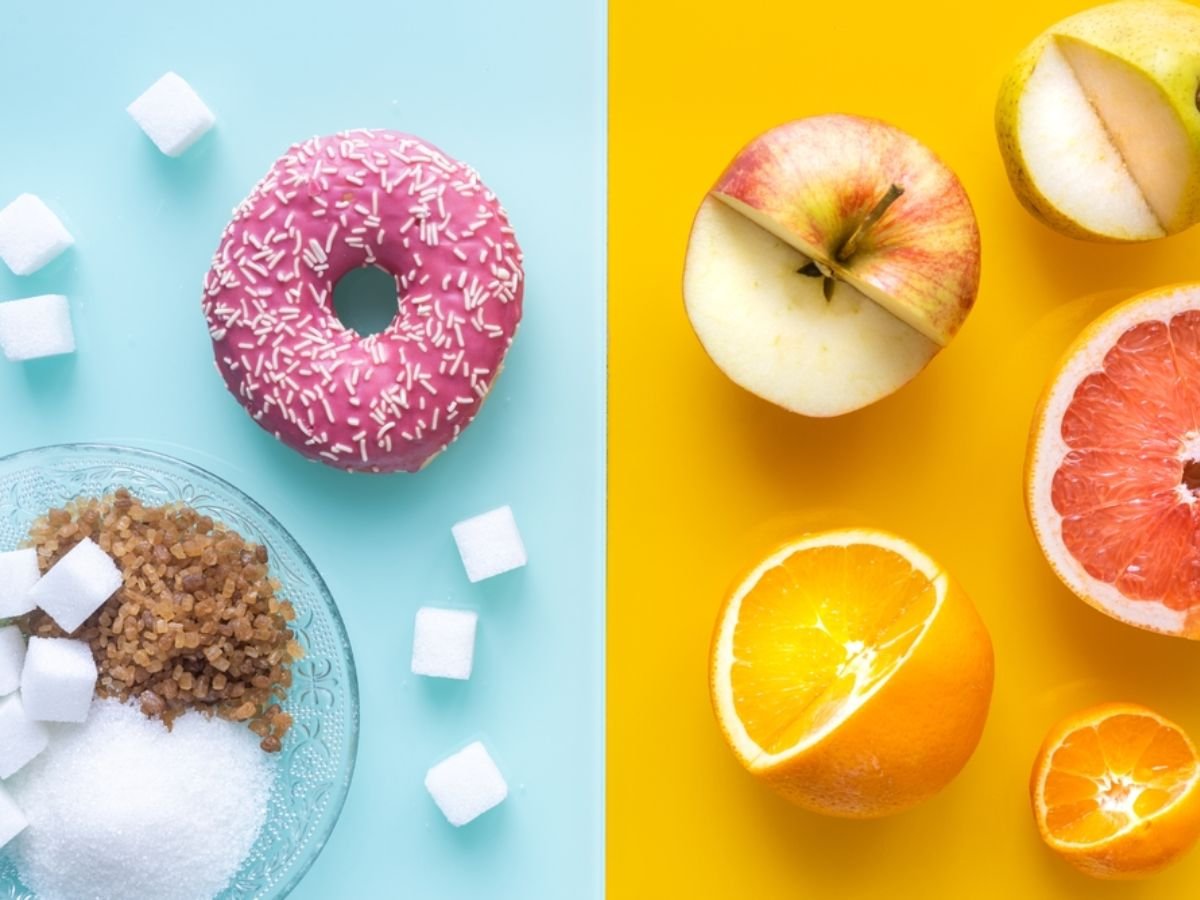If you’ve been relying on processed foods for convenience, you might have noticed their impact on your health—whether it’s weight gain, energy slumps, or digestive issues. While processed foods are designed to be quick and easy, they often come with hidden sugars, unhealthy fats, and artificial additives that can harm your body in the long term. We’ll explore what happens when you cut processed foods from your diet and offer practical processed food alternatives that can nourish your body and support long-term wellness.
Why Processed Foods Are Harmful
Processed foods are any foods that have been altered in some way during preparation. This includes foods that are canned, packaged, or refined. While some processed foods can be nutritious (like frozen vegetables), many are loaded with unhealthy ingredients.
The Harmful Effects of Processed Foods
Processed foods often contain added sugars, preservatives, artificial sweeteners, unhealthy fats, and sodium, all of which can contribute to various health problems:
- Weight Gain: Many processed foods are calorie-dense and nutrient-poor, leading to overeating and weight gain.
- Blood Sugar Spikes: High in refined carbohydrates, processed foods can cause rapid increases in blood sugar, followed by crashes that leave you feeling sluggish.
- Increased Risk of Chronic Diseases: Research shows that consuming too many processed foods increases the risk of heart disease, type 2 diabetes, and certain cancers. A study published in The Lancet in 2019 found a direct link between high processed food intake and increased mortality.
Expert Insight:
Dr. Michael Greger, a nutrition expert, warns that the overconsumption of processed foods leads to systemic inflammation and metabolic dysfunction, two key factors in chronic disease development.
How to Cut Processed Foods and Replace Them
Cutting out processed foods can seem daunting at first, but with a little preparation, it’s entirely doable. Here’s how you can gradually shift towards healthier, whole foods.
1. Start with Small Swaps
Instead of eliminating processed foods all at once, start by making small changes. For instance, swap out sugary snacks for natural alternatives that provide more nutrition.
Processed Food Swap:
- Chips → Roasted Chickpeas or Nuts: Full of fiber and protein, they keep you fuller longer without the unhealthy fats.
- Sugary Soda → Sparkling Water with Lemon: Enjoy the fizz without the added sugar and calories.
2. Focus on Whole Grains Instead of Refined Carbs
Refined carbs like white bread and pasta can cause blood sugar spikes and leave you feeling hungry soon after eating. Replace them with whole grains that provide more fiber and nutrients.
Processed Food Swap:
- White Bread → Whole Wheat or Sprouted Grain Bread: These alternatives are packed with fiber, which helps regulate blood sugar and supports digestive health.
- White Rice → Brown Rice or Quinoa: Both are rich in fiber and vitamins, helping you stay full and energized longer.
3. Embrace Fresh, Whole Foods
Increasing your intake of fresh fruits, vegetables, and lean proteins can replace processed meals and snacks. These foods provide more essential nutrients, support your metabolism, and improve overall health.
Processed Food Swap:
- Frozen Dinners → Homemade Stir-Fry or Salad Bowls: Easily customizable, these meals are packed with fresh vegetables, lean proteins, and healthy fats.
- Canned Soups → Homemade Vegetable Soup: Control the ingredients and flavor while cutting out excess salt and preservatives.
4. Try Meal Prep for Convenience
Meal prepping can make it easier to avoid processed foods during busy weeks. Preparing balanced meals in advance helps you stay on track with whole food options.
Tip:
Cook large batches of grains, roasted veggies, and protein at the beginning of the week. This makes it easy to assemble a nutritious meal quickly.
Benefits of Cutting Processed Foods for Your Health
The benefits of reducing processed foods go far beyond just losing weight. When you opt for processed food alternatives, your body can function optimally.
1. Improved Digestion and Gut Health
Whole, unprocessed foods are rich in fiber, which helps improve digestion and promotes a healthy gut microbiome. A diverse, healthy gut microbiome can reduce inflammation and improve nutrient absorption.
Case Study:
A study in the American Journal of Clinical Nutrition found that participants who replaced processed foods with high-fiber, whole foods had improved gut health markers and reduced bloating.
2. Steady Energy Levels Throughout the Day
Unlike processed foods, which can lead to energy crashes, whole foods provide sustained energy. Whole grains, fruits, and vegetables release their energy slowly, keeping you alert and energized.
Personal Experience:
A reader who swapped processed snacks for fresh fruits and nuts reported feeling more energetic and alert by mid-afternoon, instead of experiencing the usual 3 p.m. slump.
3. Weight Loss and Better Body Composition
Whole foods are typically lower in calories but higher in nutrients, meaning you can eat more while still losing weight. Foods high in protein and fiber also help regulate appetite, reducing overeating.
Statistical Insight:
A study published in JAMA Internal Medicine found that participants who followed a diet rich in whole foods had a significant reduction in body fat percentage compared to those eating processed foods.
4. Reduced Risk of Chronic Diseases
Cutting processed foods from your diet significantly lowers your risk for chronic conditions like heart disease, diabetes, and high blood pressure. Whole foods, like vegetables, lean meats, and legumes, are packed with antioxidants, vitamins, and healthy fats that protect your body from inflammation and oxidative stress.
How to Implement These Solutions in Daily Life
Making the switch to a whole-foods-based diet doesn’t need to be complicated. Here’s how you can easily implement these solutions:
1. Start Your Day with Whole Foods
Swap sugary cereals or pastries for whole-food breakfasts. Opt for oatmeal, a smoothie with greens and fruit, or avocado toast on whole grain bread.
Real-Life Example:
Samantha, a busy professional, swapped her daily bagel for a vegetable omelet with avocado. She noticed improved focus and fewer cravings by mid-morning.
2. Prepare Your Meals in Advance
Meal prepping is key to avoiding processed foods. Plan and cook meals like salads, grain bowls, or stir-fries that you can easily store and reheat throughout the week.
3. Stock Up on Whole Food Snacks
Having healthy snacks on hand makes it easier to avoid processed options when hunger strikes. Keep a stash of nuts, fruit, or veggie sticks with hummus for easy access.
Final Thoughts
Cutting processed foods from your diet can have a transformative effect on your health. By swapping processed snacks, meals, and beverages with whole, nutrient-dense foods, you’ll enjoy improved energy, better digestion, and long-term disease prevention. Start small with a few swaps, and gradually build a whole-foods lifestyle. Have you tried cutting out processed foods? Share your experiences or ask any questions in the comments below!













Leave a Reply
View Comments